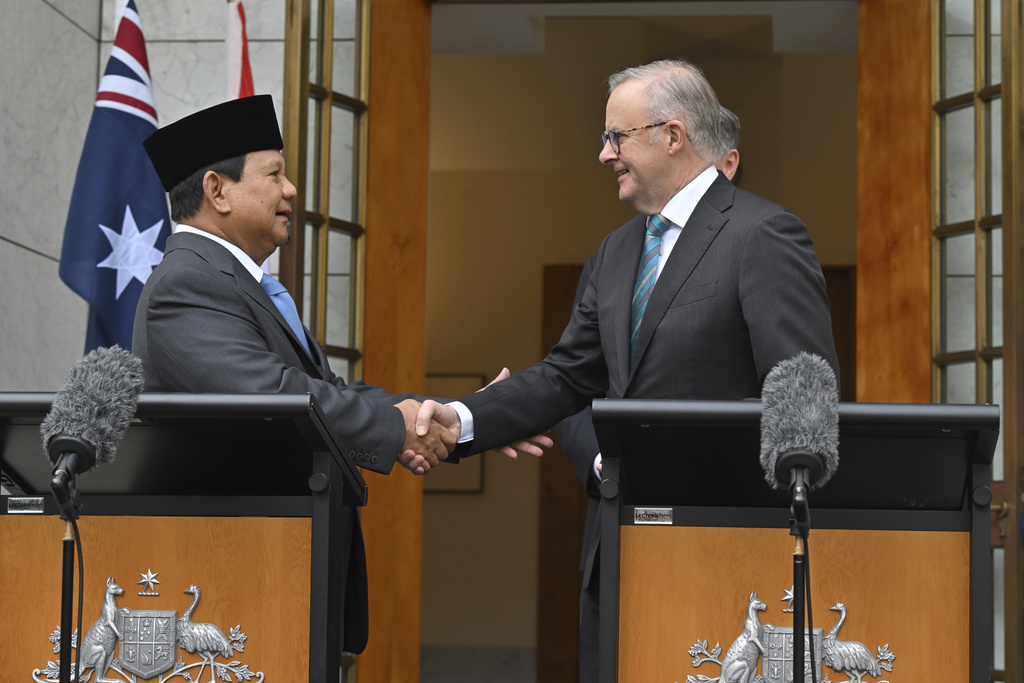
CANBERRA (AFP) – Australia and Indonesia cemented a landmark new defence pact on Tuesday, pledging closer cooperation in the Asia-Pacific region as a new leader prepares to take over in Jakarta.
The pact – which includes provisions for joint drills and deployments to each country – was unveiled during Indonesian defence minister and president-elect Prabowo Subianto’s visit to Canberra.
Prabowo takes the reins of the world’s third-largest democracy on October 20.
Speaking after meeting Australian Prime Minister Anthony Albanese, Prabowo said the defence deal represented a “very good outcome” that would be “beneficial to both our countries in the future”.
Aside from defence, Prabowo expressed a wish for Australian cooperation on the economy, agriculture, food security and curbing international drug trafficking.
“We would like to see more Australian participation in our economy,” Prabowo told reporters at Australia’s Parliament House.
“I am determined to continue this good neighbour relationship… Australia plays a very important role for us.”
Since being elected in February, the ex-special forces commander has also visited China and Japan, displaying a keener interest in foreign affairs than incumbent Joko Widodo.
During Widodo’s decade-long tenure, he never attended the UN general assembly in New York, rarely spoke a foreign language and was regularly chided for taking little interest in foreign affairs.
On Tuesday, Prabowo said he wanted to follow the “general policies” of his predecessor, but also forge closer ties with Canberra.
“Prabowo is much more interested in international affairs,” said Greg Raymond, a foreign affairs expert from the Australian National University.
“He will look to bring Indonesia into international issues. He’s very confident, he’s very knowledgeable, and he’s very comfortable in international settings.”
Fraught trade
Trade between Australia and Indonesia meanwhile remains far trickier terrain.
A flood of cheap Indonesian nickel threatens to crash international prices and all-but wipe out a once-profitable Australian sector.
Indonesia and Australia are the world’s two biggest thermal coal exporters, and both are anxious to shed their economic reliance on polluting fossil fuels.
While nickel remains a point of tension, there are other areas – such as electric vehicle manufacturing – where opportunities abound.



















































